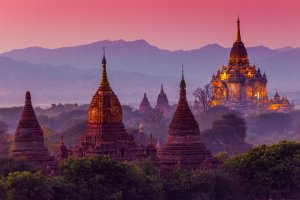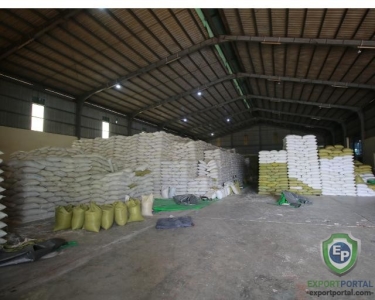Couldn't find the product you want?
Fill out this form to request the product.
Exports

Myanmar, also known as Burma, is a state in Southeast Asia bordered by Bangladesh, India, China, Laos and Thailand.
The economy of Myanmar is an emerging economy. It is rich in jade and gems, oil, natural gas and other mineral resources.
Myanmar produces precious stones such as rubies, sapphires, pearls, and jade. Rubies are the biggest earner; 90% of the world's rubies come from the country, whose red stones are prized for their purity and hue. Thailand buys the majority of the country's gems.
Myanmar once was Asia's largest rice exporter, and still accounts for nearly a third of the world's total teak production.
Myanmar’s largest exports are mineral commodities. These include items such as natural gas, petroleum, petroleum products, precious and semi-precious stones, tin, tungsten, zinc, coal, copper, lead and cement. The largest export item is natural gas, which is largely responsible for Myanmar's economic growth.
Other major commodities exported by Myanmar are pulses and beans, wood/forest products notably teak, fish, rubber, clothing.
The top export partners of Burma are Thailand, China, India, Japan and South Korea.
Customs requirements of Myanmar
Customs Department
Website: www.myanmarcustoms.gov.mm
Email: mcd.ygn@mptmail.net.mm
Address: 132, Strand Road, Yangon
Phone: +95-01-380729
Fax: +95-01-371231
The mission of the Myanmar Customs is to achieve trade facilitation through simplification of customs procedures, without adversely effecting customs control objectives to maintain proper collection of revenue.
The main objectives of Myanmar Customs are the following:
- Collection of revenue on import and export in accordance with the existing law, rules and regulations;
- Examination and investigation on goods imported and exported in accordance with existing laws, rules andregulations and taking action against incompliance;
- Compliance of statistics on international trade;
- Modernization of customs procedures to be in line with international practices;
- Cooperation and coordination with other allied law enforcement agencies;
- Supporting the development of trade and national economic development.
Tariffs
Myanmar is a member of the WTO. However international tariff standards cover only 18 percent of its goods and services. While its commitment to binding international tariffs agreements is limited, Myanmar generally levies tariffs that are comparable or lower than that of other countries in the region. Agricultural goods have an average tariff of 8.7 percent while non-agricultural goods have an average tariff of 5.1 percent. Tariffs generally range from 0 to 40 percent. Luxury items have the highest tariffs. As a member of the ASEAN Free Trade Area (AFTA), Myanmar has committed the Common Effective Preferential Tariff Scheme (CEPT) to reduce intra-ASEAN import tariffs for 93% of the total tariff lines by 2015, and 100% of the total tariff lines by 2018.
Documentation
The Myanmar Customs Department requires the following documentation:
1. Import license or permit;
2. Invoice;
3. Bill of Landing or Air Consignment Notice;
4. Packing list;
5. Other certificates and permits issued by the relevant government departments as a condition for import.
Labeling
Myanmar follows Codex guidelines and the ASEAN Common Principles and Requirements for the Labeling of Prepackaged Foods. All foods must be labeled and imported products must have the labels which must be affixed with the name and address of the local importer and/or distributor and the country of origin.
The label has to contain the following information:
- Name and brand of product;
- Country of origin;
- Name and address of the manufacturer;
- List of ingredients (including salt) and additives;
- Nutrition and caloric value;
- Allergenic ingredients and allergenic processing aids (gluten, soybean, peanuts, etc);
- Net weight/volume (metric system);
- Expiration date/shelf life;
- Shelf life (if the product has a shelf life of less than three months, it must include the day/month/ year of expiration);
- Products containing GMO s must be labeled accordingly.
Sources:
http://www.mof.gov.mm/en/content/customs-department
http://ec.europa.eu/trade/policy/countries-and-regions/countries/myanmar/index_en.htm
